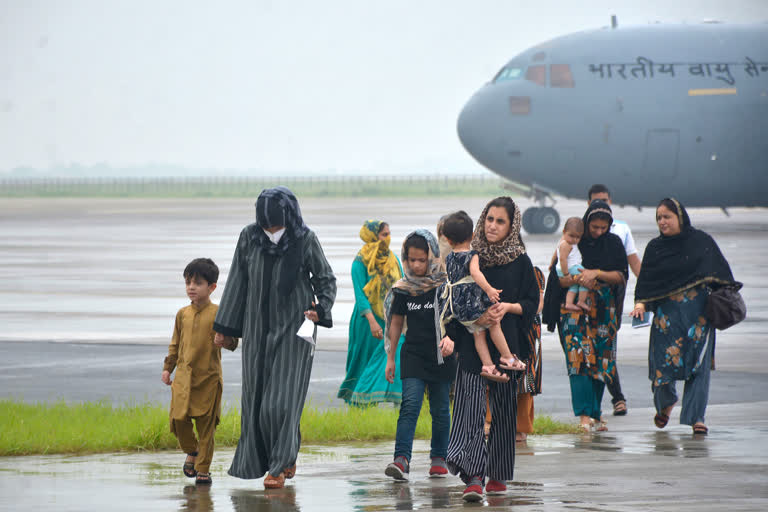New Delhi: In a TV interview shot in Kabul that has gone viral, a ‘senior commander’ of the Islamic State (Khorasan) issued a prophetic warning two weeks before Thursday’s (August 26, 2021) devastating suicide bombing that his organization was just lying low but will ‘act’ once the foreign troops depart from Afghanistan.
But what the terrorist leader also told the reporter was that he led a IS-K unit of about 600 ‘fighters’ who are “Indians, Pakistanis and central Asians”.
That he spoke of Indians in the same breath as Pakistanis and central Asians—who are prolific in IS (K)—may also indicate that Indians are present in substantial numbers but of whom the Indian government does not have much information.
At odds with the Taliban, IS (K) adheres to a very strict and radical form of Islam. An affiliate of the parent Islamic State of Syria and Levant (ISIS), the IS (K) has claimed responsibility for the airport suicide attack on Thursday that has claimed the lives of at least a hundred people including 13 US soldiers.
Last year, a report brought out by the Kabul-based Afghan Institute for Strategic Studies (AISS), one of Afghanistan’s leading think-tank, also brought to light the case of a IT professional from India’s Punjab who joined the IS (K). It says: “A wife of a now deceased ISK fighter also claimed her husband left his IT job in Punjab, India for the economic benefits of joining ISK.”
Indian official records do not have any record of a IT official from Punjab working for the IS (K).
Read: Ten including children killed in US airstrike in Kabul on Sunday
The ISK had made attractive offers of $500-a-month salary (about Rs 30,000) and laptops to new recruits including those from India.
The fact by the AISS was gleaned from interviews with multiple IS (K) prisoners in prisons run by the National Directorate of Security (NDS) in Afghanistan.
Officially, the Indian security establishment has records and information of about 28-30 Indians who left for Afghanistan in order to fight for the IS-K, but there are strong indications that the numbers are much more, maybe running into hundreds at least.
“Two batches had left to join the IS (K) from India. One was a batch of about 21 people, and another batch of about 7 people,” a senior intelligence official told ETV Bharat.
“There have not been any reports of anyone departing from India to join the terror outfit in Afghanistan in the last one and a half year or so which may be also because of the fact that aeroplane flights had stopped due to the ongoing pandemic.”
“But we do not have numbers for Indian-origin people who may have left from the Middle-East, especially Dubai, where many Indians reside,” the official said.
Sunayil Fewas’ case is an example. Not part of the Indian government’s dossier on the 28-30 Indians who joined the IS (K), Fewas passed out from an engineering college in Kerala’s Malappuram.
Read:5 rockets fired at Kabul airport, intercepted by missile defence system: Reports
Requesting anonymity, a college mate of Fewas told ETV Bharat on the phone from Dubai: “Never the religious sort initially, Sunayil worked with multinationals like Johnson Controls and UTS Carrier in Dubai before his transformation into a religious radical. After bringing his family and four young children with ages 3 to 14 to Dubai he suddenly disappeared one day. Only in March, 2019 did I come to know that he was in Afghanistan’s Nangarhar fighting for the IS (K).”
Fewas’ former classmate agrees that the possibility of many more Indian-origin people leaving from Dubai and West Asia to fight for the IS (K) is indeed “strong”.
In fact, it was an Indian suicide bomber who blew himself up inside the Dharamshala gurudwara in the Shorbazar area of central Kabul on March 25, 2020, killing 28 people.
Hailing from Kerala’s Kasargod, Mohammed Sajid Kuthirummal also known as Saji and Sajid, who later took the name of Abu Khalid al-Hindi, joined the Islamic State after flying out from Mumbai to Dubai on March 31, 2015.
An ISK post claimed the attack was to “avenge the plight of oppressed Muslims in Kashmir”.



